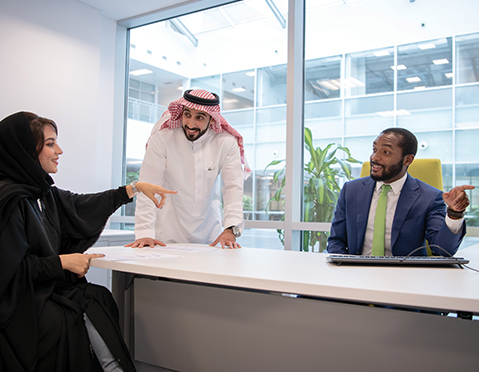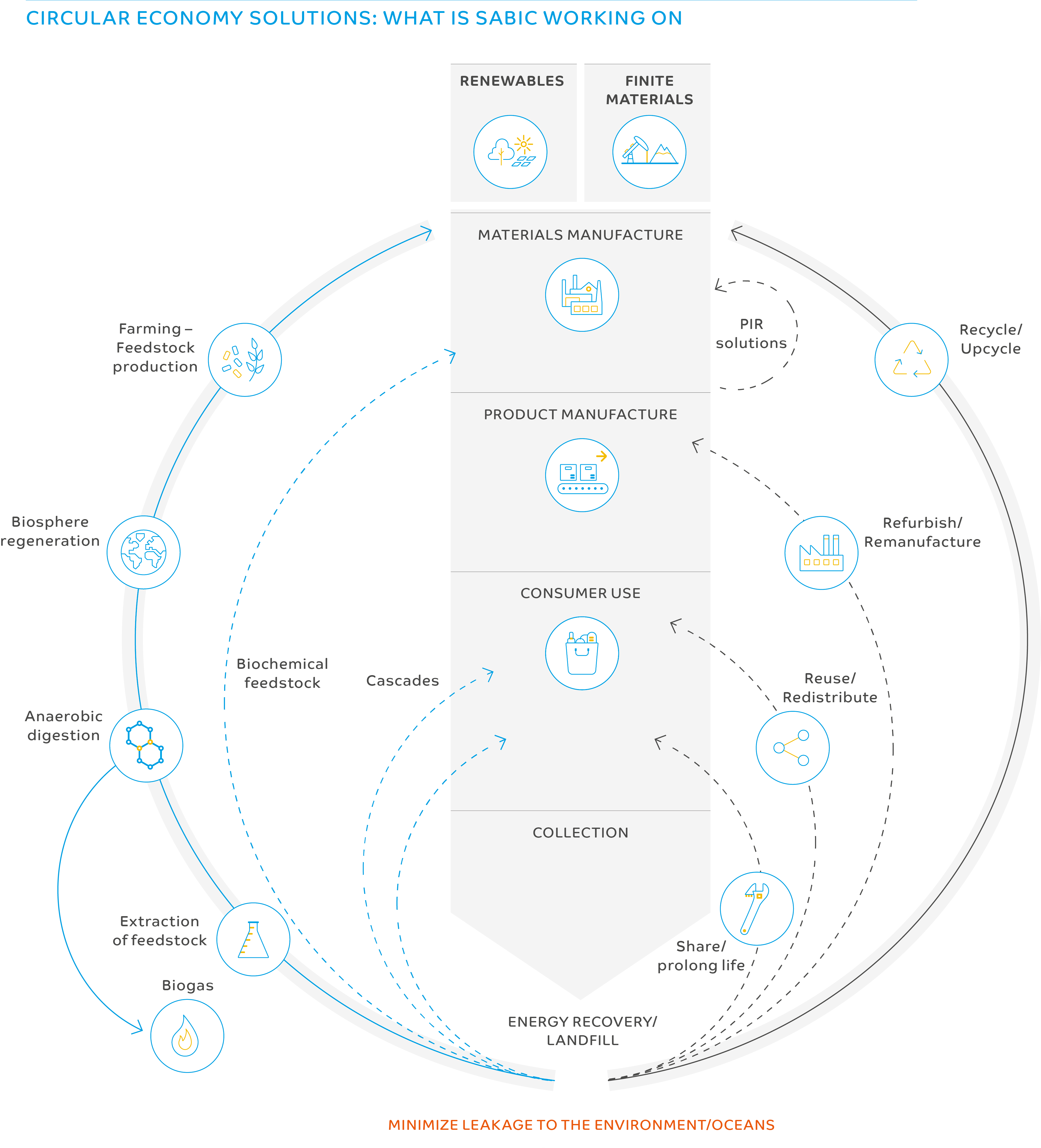Engagement and collaboration
In our efforts to lead the industry to a sustainable future, we recognize the broad range of impacts we have on a diverse array of stakeholders.
In order to use business for good, we are committed to working with key stakeholders in the 50 countries where we operate.
STAKEHOLDER ENGAGEMENT: FOUR MAIN OBJECTIVES
- Identify primary stakeholders and sources of accountability
- Understand our effect on stakeholders and their priorities
- Discover new ways to collaborate and create value
- Establish best tools for stakeholder engagement
PLASTIC WASTE AND CIRCULAR ECONOMY
SABIC has long been engaged in our industry’s efforts to reduce plastic waste. From 2014 to 2018, we chaired the World Plastics Council, a global, industry-led effort to develop sustainable solutions to marine debris.
This year, we stepped up our impact by becoming a founding member of the Alliance to End Plastic Waste (AEPW). This new non-profit organization, consisting of global companies across the chemical-and-plastic value chain, will bring collective knowledge, resources, and experience to address plastic waste leaking into the environment.
SABIC is also actively involved in the American Chemistry Council (ACC), and in 2018 joined other plastic-resin manufacturers to support ambitious goals for capturing, recycling, and recovering plastics.
THE WORLD BUSINESS COUNCIL FOR SUSTAINABLE DEVELOPMENT
Since 2011, SABIC has participated in the World Business Council for Sustainable Development (WBCSD), a CEO-led organization of more than 200 global businesses working together to accelerate the transition to a sustainable world.
WBCSD recognized SABIC’s leadership in connecting sustainability with finance and support for the development of guidance on how companies can leverage enterprise risk management to understand and mitigate sustainability risks. SABIC and other companies were also acknowledged for contributions to a WBCSD chemical-sector road map that offers a unique, collective vision for how companies can engage across value chains to build business value while contributing to the UN’s Sustainable Development Goals.
GOVERNMENT ENGAGEMENTS

Stakeholder engagement runs throughout SABIC’s sustainability program, and the company’s leaders take responsibility for this engagement.
SABIC is a trusted partner of the Saudi government, and provides support for climate discussions at the United Nations. This year, a team of employees showcased SABIC’s sustainability projects, solutions related to climate change, and future plans in the Saudi pavilion at the Conference of Parties 24 (COP24) in Katowice, Poland, continuing involvement from previous years.
The European Commission aims to transform Europe into a more circular and resource-efficient economy supported by a new strategy for plastics that protects the environment from plastic pollution while fostering growth and innovation.
SABIC follows developments with the European Commission closely and engages with regulators through our Government Affairs team and through plastics and chemical industry trade groups.

